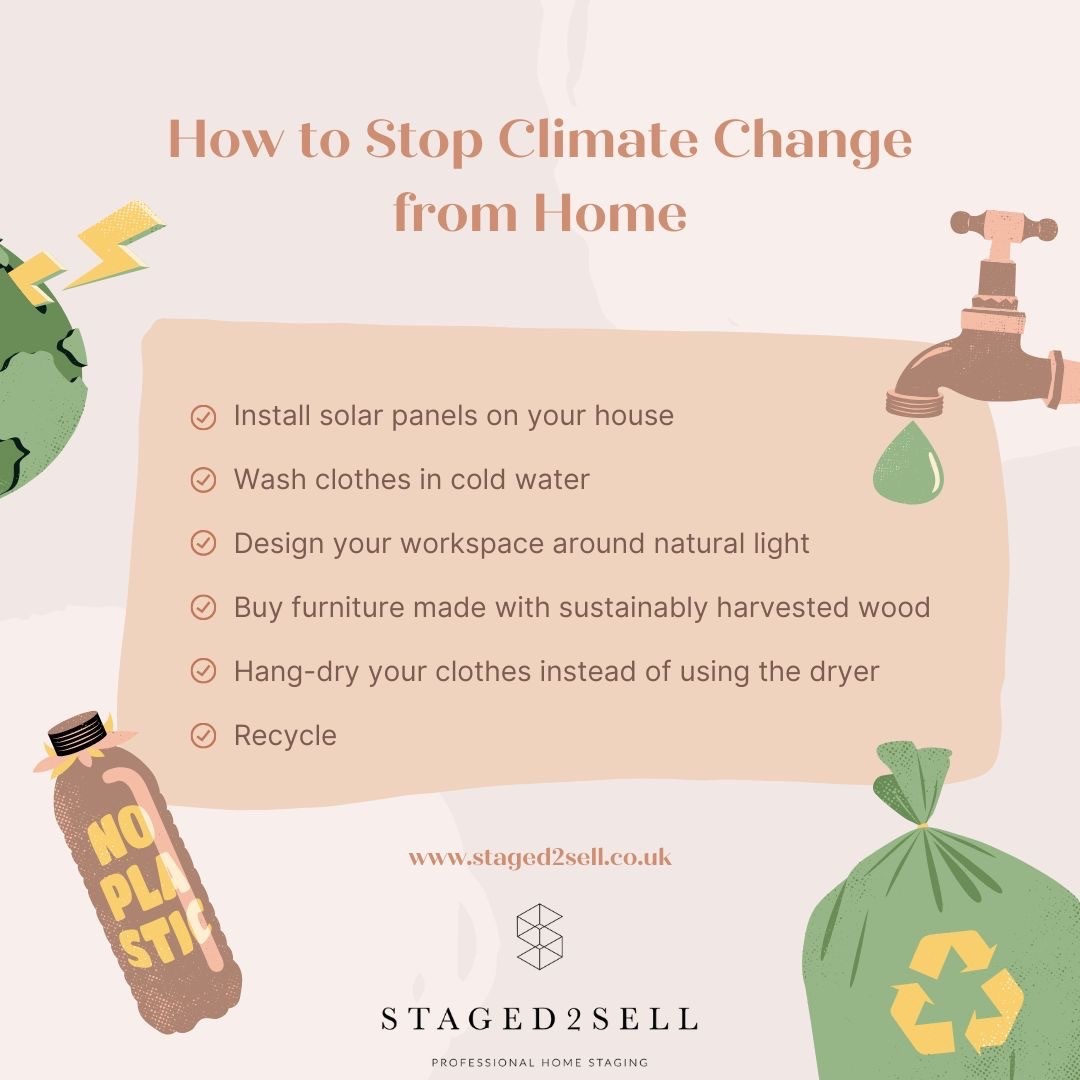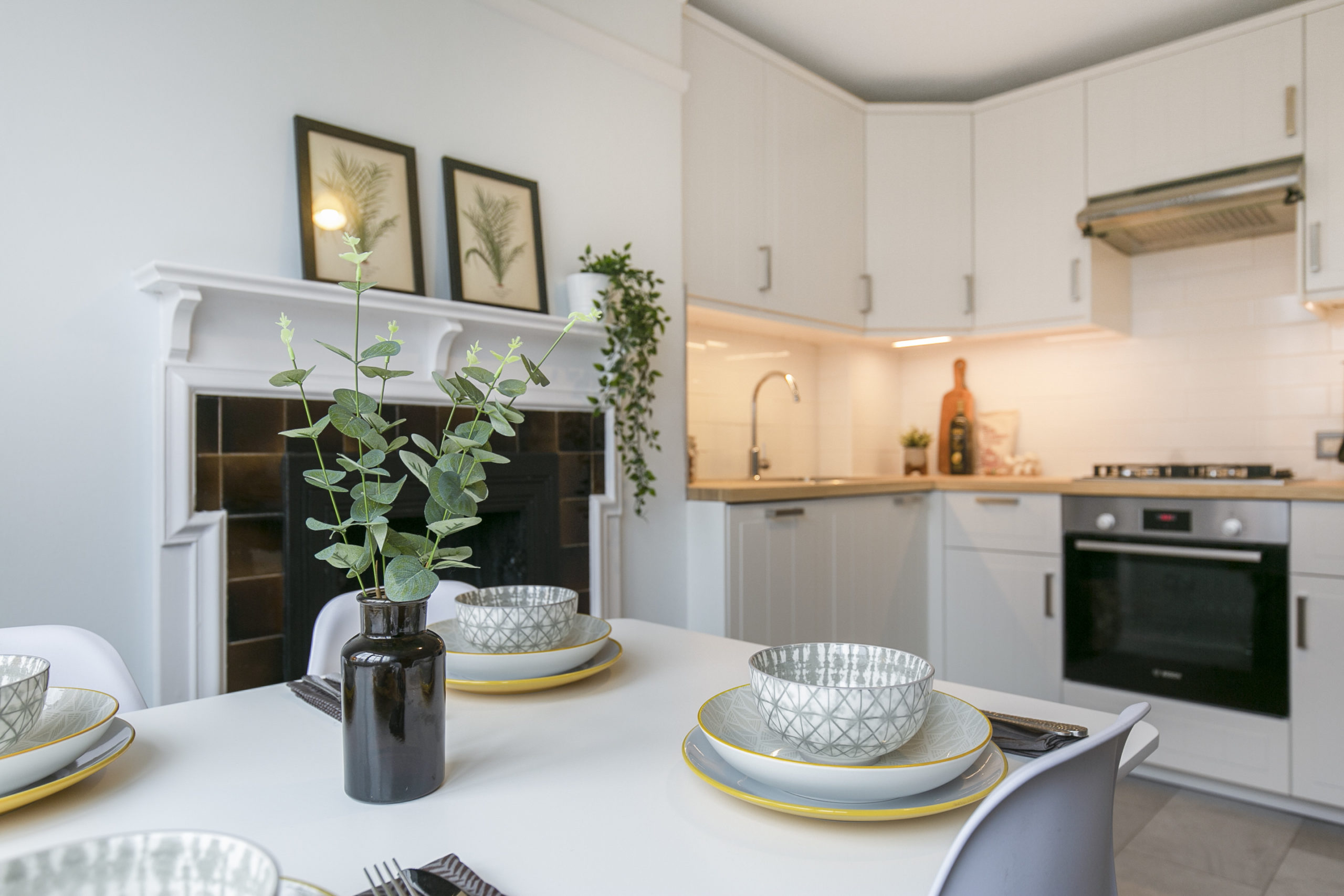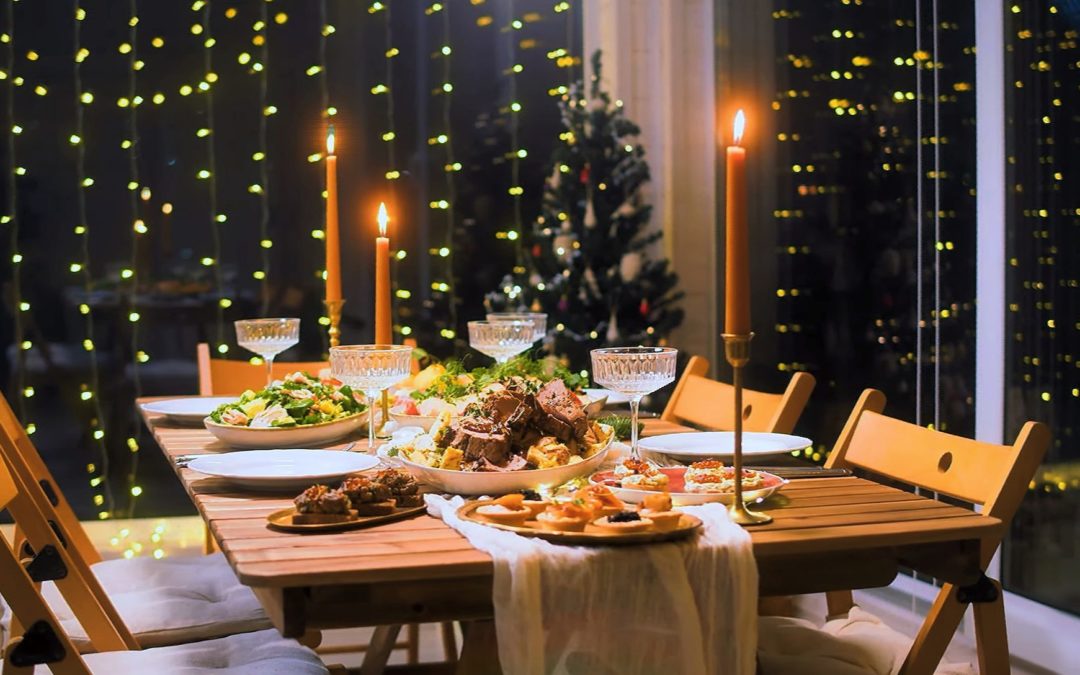
One of the big trends for homes in 2022 is going to be about ensuring your home is sustainable.
Check out some top tips on how you can do more to protect the environment from your own home:
THE KITCHEN:
- Buy energy-efficient domestic appliances — our kitchen appliances are undeniable energy guzzlers that become even worse culprits if not used in the right way.
- Clothes should be hung outside to dry.
- Defrost fridges at least every six months, if they don’t have an automatic function, and avoid putting hot food straight in.
- Ditch sponges and scouring pads made from non-renewable sources containing harmful synthetic dyes and disinfectants to those made from sustainably grown crops, such as loofah and coconut.
THE LIVING / SITTING ROOM:
- Regulated tap inserts are offered free by many water companies. Easy to fit on specified taps so that even DIY-phobes can cope, they limit splashing and restrict water flow to five litres (nine pints) per minute, thus saving the average household money each year. Shower Sense flow regulators do the same, ensuring that the shower releases its contents at a more eco-friendly rate of eight litres (14 pints) per minute. Check out your local water companies website for more information.
- Conserve water and send less volume to sewerage treatments by following the adage ‘If it’s yellow, let it mellow; if it’s brown, flush it down’. There are obviously right and wrong times to put this into practice — for example, not when visitors are due, but possibly at night when only the family is home.

THE BOILER ROOM:
- Solar panels come with the second lowest price tag and payback, but the system has to be scaled to match consumption. Unfortunately for householders, Government feed-in tariffs for additional power generated ended in April. Increasingly, solar panels are linked up to battery storage, so extra energy generated when the sun is shining can be banked and used when needed.
- A switch to a Green energy supplier won’t mean using non-National Grid electricity and gas, but the provider will buy energy from renewable sources, matching the amount you purchased
THE GARDEN:
- A greenhouse — even a small one — or a polytunnel will extend the growing season and will be ideal for aubergines, melons, peppers and tomatoes
- Composting garden and non-food uncooked kitchen waste is valuable, but, in most households, the available waste produces little organic matter in the end. Where fallen leaves are abundant in the autumn, stacking leaf mould is worthwhile. Composted municipal waste is increasingly widely offered and is a good source of sustainable soil food.
Kitchen Staging
The kitchen is one of the biggest selling points of any home. Home buyers want to fall in love with this space and it can play a major factor in whether they decide to put in an offer or walk away. Of course, kitchens can be a big turn-off to buyers if they are...
Questions to Consider Before Staging Your Home
If you’re trying to sell your home quickly and for the most money, it’s always best to consider staging your home. A staged home always tends to sell significantly faster than an unstaged home. But before staging your home, there are some things that are helpful to...
Colour Of The Month – June
The primary colour for June is light purple like Lavender. The main three June colours are light purple, cream, and white. Many people believe in horoscopes and colorology, they change their room décor each month according to the colour of the month. Something to...
Tips for Home Staging Using Wallpaper
The goal of home staging is to make it appeal to the widest number of people, while remaining welcoming and attractive. Ultimately, you want potential buyers to imagine themselves living in the home. Most people think it’s smart to stay away from wallpaper when...
Living Room Staging
Staging a living room before a house viewing can go a long way if you're looking to sell your house quickly. Home staging is all about presenting potential buyers with their dream home. You can't rely on all buyers to have the imagination to see your house's...

The Best Christmas Staging Tips 2023
Follow these top tips to create a Christmas dinner table that will wow your guests.
Home Office Staging
More of us are working from home these days. And while the kitchen table might have been okay during lockdown, a home office is a must-have for home hunters in 2022. However, if your home office isn’t staged properly, it can have the opposite effect on buyers. If you...
Spring Clean
How did your bank holiday weekend go? Did you find yourself Spring cleaning? If you did, there may just be an instinctive reason for it. According to an ancient tradition, the three days after Palm Sunday are devoted in many countries to a spring cleaning of the...
5 DON’TS Of Home Staging Yourself
What should you not do when staging a house? Everyone who's ever sold a home knows about the importance of home staging – make the house that little bit more appealing to buyers with clever decorating and visual tricks. But what are some of the big NO’s in home...
Home Staging: is it worth the cost?
If you’re selling your property you want to make sure that you get the best possible price in the shortest possible time. One way to ensure that it is ready to impress potential buyers is to hire a professional home staging company. But is it worth the cost? WHAT IS...
Recent Comments